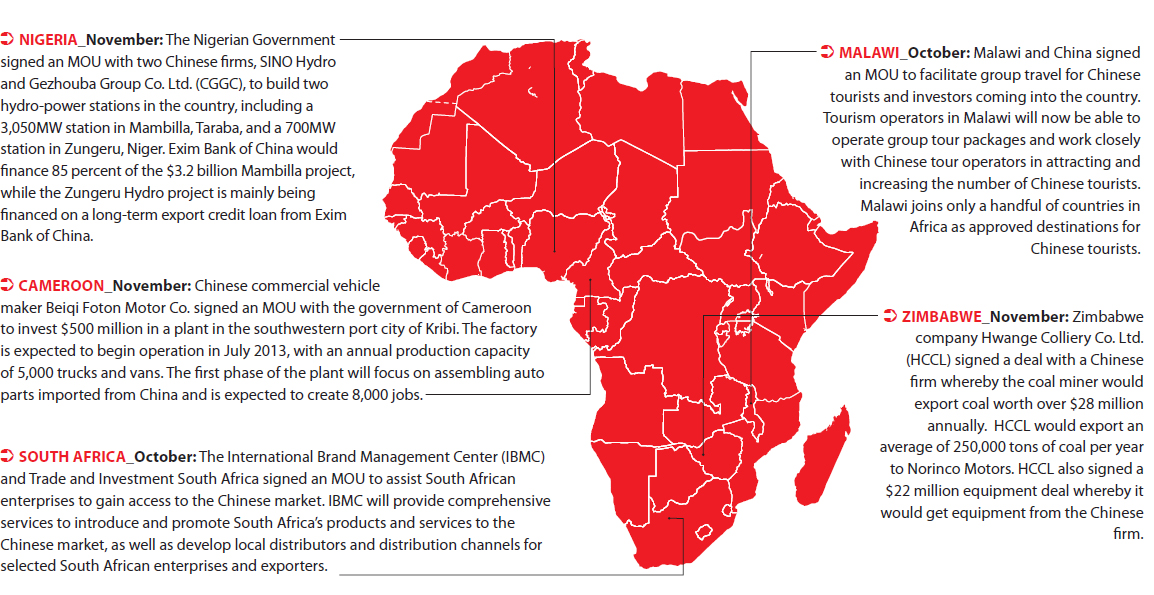|

China - Responsible Stakeholder
It is clear that China has prioritized Africa as a strategic partner at both the political and economic levels. For the foreseeable future, African affairs will be significantly shaped by China's direct commercial involvement, while China's growing geopolitical influence will have significant long-term consequences for Africa's political and economic development. Furthermore, research has proven that Chinese investments in Africa clearly boost local economies and create new commercial opportunities in domestic markets and over time, will promote the establishment of small enterprises in Africa and create more employment opportunities in local economies.
Along with the new opportunities for Africa that coincide with China's impressive economic growth, major challenges are becoming increasingly visible. A 250-page report issued by South Africa Resource Watch (SARW) in November cites several cases of Chinese companies violating labor laws in Sub-Saharan Africa and subjecting local employees in the mining industry to harsh and unfair working conditions. The report, the first of its kind to investigate Chinese labor practices in Zimbabwe, Zambia, and the Democratic Republic of the Congo, states that small Chinese mining companies that fall under the radar are the most likely to engage in labor abuses and infractions.
SARW's findings are significant given the fact that more than 2,000 Chinese companies now have operations in 50 countries in Africa, with local hires accounting for more than 85 percent of their workforce. According to the report, Chinese mining companies have used contract labor in violation of Zimbabwe's Labor Relations Act, with many Chinese firms failing to observe minimum wage requirements.
The report goes beyond simply highlighting the labor issues, arguing that a "win-win partnership" between Africa and China is still possible, with companies such as Sinosteel already taking measures to improve local working conditions. However, the burden of improving local working conditions does not entirely sit on the shoulders of Chinese mining companies. The report goes on to conclude that "the degree to which China helps to develop rather than to exploit the region depends on Southern African governments and their citizens more than it does on the attitudes and strategies of Chinese investors." Increased dialogue and effective policy responses from both sides are required to ensure a mutually beneficial relationship in the long run.
Even before the report was published, some beneficial outcomes were already starting to emerge. The authors noted that some of the same Chinese mining companies which were investigated and profiled in the report later invited researchers to revisit them to introduce the incremental improvements they had implemented to their corporate social responsibility approaches. In the end, highlighting the problem and creating awareness among relevant stakeholders is often a difficult but necessary first step in addressing complex socio-economic problems.
China-focused international advisory firm operating in four principal areas: Commodities, Capital, Procurement, and Strategy.
For more information, please contact:
Daniel Galvez, danielgalvez@thebeijingaxis.com
www.thebeijingaxis.com |